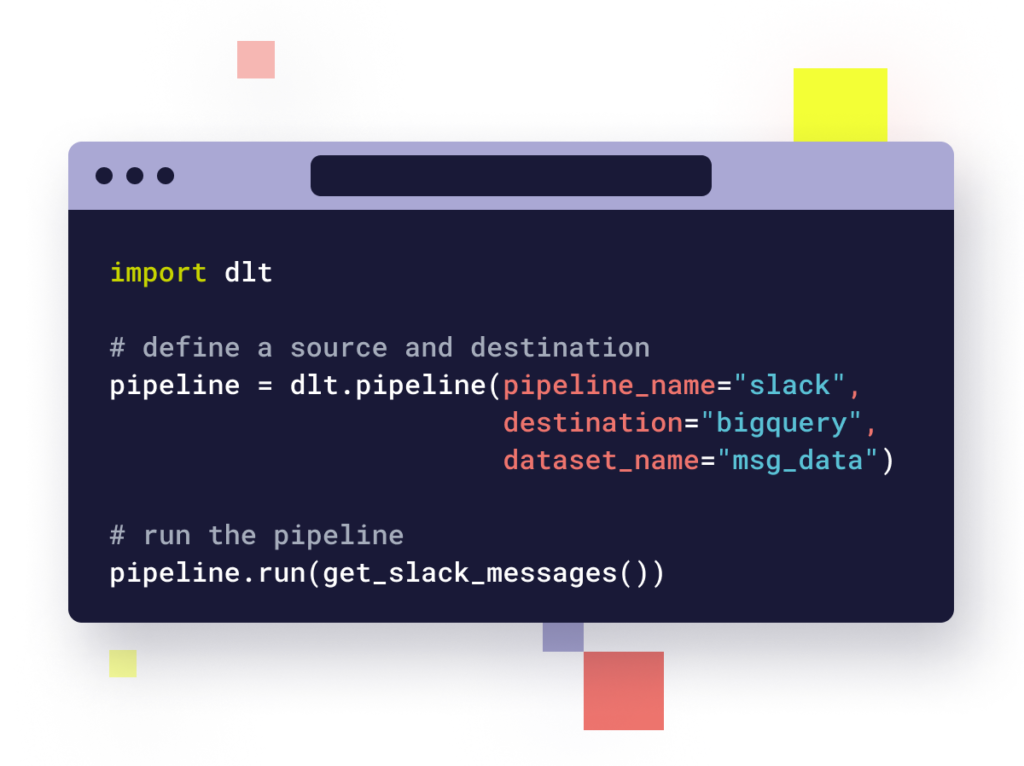The programming language Python has emerged as the preferred choice for artificial intelligence (AI) applications. However, integrating Python developers into legacy data infrastructure poses challenges, preventing organizations from fully harnessing the benefits of AI. Additionally, the lack of an open-source Python library tailored to AI workflows has hindered the seamless adoption of AI technologies in various settings. In response to these challenges, Berlin-based startup dltHub is positioning itself as the solution to bridge the gap between AI and existing workflows.
Empowering AI Workflows: Introducing dltHub
DLT, an acronym for “data load tool,” is a promising startup with a vision to revolutionize AI workflows. The team at dltHub is actively developing an open-source Python library explicitly designed to address the unique demands of the new wave of AI applications. This innovative library aims to seamlessly integrate into existing workflows, including Python workflows that previously lacked efficient data loading capabilities.
Embracing Python’s Versatility: dltHub’s Compatibility
One of the key selling points of dltHub is its ability to integrate seamlessly with a wide range of existing workflows. Whether it’s a Google Colab notebook, an AWS Lambda function, an Airflow Directed Acyclic Graph (DAG), or even GPT-4-assisted documentation and development playgrounds, dltHub aims to be the go-to Python library that simplifies data loading and accelerates AI operations.
Backed by Dig Ventures: Pre-Seed Funding Success

Photo:
dlthub
To further advance their vision, dltHub secured a substantial pre-seed funding of $1.5 million from Dig Ventures, a reputable venture capital firm founded by Ross Mason, known for his work on the Mule Project and MuleSoft. The investment round also saw contributions from prominent figures in the AI and enterprise space, including founders from companies such as Huggingface, Instana, Miro, and Matillion. This financial backing underscores the belief in dltHub’s potential to reshape AI workflows.
dltHub in Action: Real-World Deployment and Impact
dltHub’s impact is not limited to theory but extends to real-world applications. A growing community of Python developers is already leveraging the library in production at several scale-up tech companies. One such company, San Francisco-based software delivery firm Harness, has experienced transformative changes in their data operations since implementing dltHub. The library has allowed them to accelerate DataOps, enabling the team to allocate more time to crucial tasks while still customizing extractors to meet evolving business requirements.
Testimonials from Industry Experts
dltHub has garnered positive reviews from industry experts who recognize its value in the current AI landscape. Alexander Butler, Senior Data Engineer at Harness, shared his perspective on how dltHub transformed their data operations and accelerated their DataOps team. Julien Chaumond, CTO and co-founder at Huggingface and an angel investor at dltHub, emphasized the significance of Python open-source tools in driving the current machine learning revolution. As a user-friendly Python library, dltHub empowers a new wave of practitioners to engage with AI technologies confidently.
Positioning against Competitors
dltHub’s unique offerings position it in a competitive space with potential overlaps with Extract, Transform, and Load (ETL) companies such as Meltano, Stitch Data, Airbyte, and Fivetran. However, the broader perspective places dltHub in the realm of data warehouse companies like Snowflake, Databricks, and Microsoft Fabric, which share the common goal of bringing AI to enterprise operations.
Conclusion
As Python continues to dominate the AI landscape, bridging the gap between AI workflows and existing data infrastructure is crucial for organizations to fully realize the potential of AI technologies. Dig Ventures is supporting dltHub’s open-source Python library, which aims to streamline data operations and solve the Python library problem for AI. Its compatibility with various existing workflows, real-world deployments, and positive feedback from industry experts position dltHub as a promising contender in the evolving AI tooling landscape.

















































